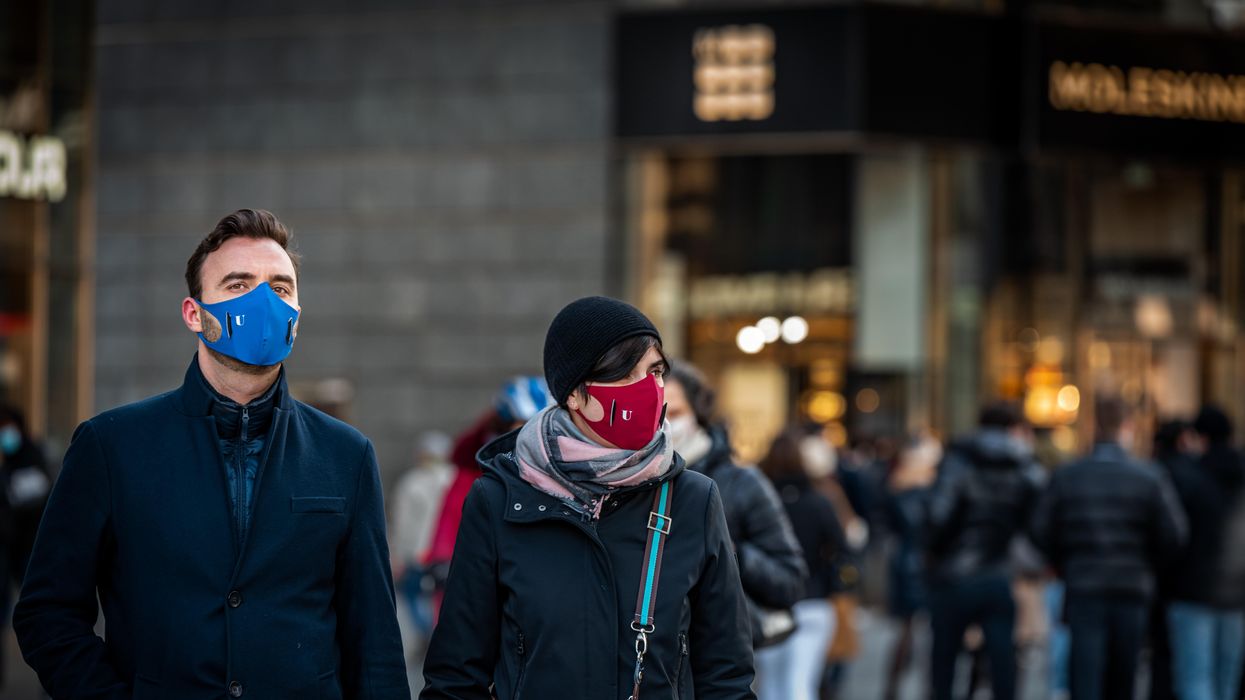Compulsory Vaccination Is American As Apple Pie — And Old As The Revolution
Reprinted with permission from Alternet
With a large portion of the country getting vaccinated, we are finally seeing light at the end of the tunnel. To protect public health, certain activities will obviously require people to be vaccinated, a kind of policy that has existed in some form or another since the American Revolution. Despite the longstanding established practice, the idea of a "vaccine passport" has people making bizarre comparisons to the Holocaust and tyrannical governments. It is common practice for people to provide their vaccination records in order to go to school, have certain jobs and travel to certain countries. The concept of a "vaccine passport" is just to streamline this process and make it easier for people to show proof of their COVID-19 vaccination. If one doesn't want to get vaccinated, they might just have to forgo participating in certain activities.
Compulsory vaccination laws are justified legally based on the state's compelling interest in protecting the health and welfare of the population. It is common to restrain a little individual liberty in order to protect the safety of the larger society. Consider the Oliver Wendell Holmes quote, "The right to swing my fist ends where the other man's nose begins." Our liberty must be restrained if said liberty has the likelihood of putting others at risk. This applies to gun laws, traffic laws, or bringing shampoo bottles on airplanes. If a person doesn't want to get vaccinated, that is their choice. But they likely forfeit traveling, attending schools, or having certain jobs.
Compulsory vaccination policies in this country began during the American Revolution. Smallpox was a huge threat to the Continental Army and word of the disease was actually halting enlistments. In order to protect soldiers and the war effort, General Washington ordered all new recruits receive the "variolation" for smallpox in 1776. The policy was successful at eradicating smallpox among soldiers, which helped the Continental Army defeat the British invasion at Saratoga.
The first law that required the general population get vaccinated was passed in Massachusetts in 1809. The state empowered local boards of health for towns to require free vaccinations of people over 21 if the boards felt it was necessary. If a person refused, they had to pay a $5 fine (about $100 in today's money). States across the country followed with their own compulsory smallpox vaccination laws though the specifics varied widely. Some only required compulsory vaccinations in the midst of an epidemic. Some only required vaccinations for children attending schools.
New York City exercised particularly broad power in allowing health officials to enforce vaccinations or quarantines. As a busy international harbor, the city felt particularly threatened by incoming diseases. As a result, immigrants and ships were often required to quarantine. Unfortunately, these policies often took on a distinctly anti-immigrant and nativist turn. Public health officials often blamed poor immigrants for spreading diseases rather than engaging in education to encourage vaccine compliance.
Common policy in the late 19th century was to place a yellow flag in front of an infected building and not allow anyone in or out. However, there weren't clear guidelines on forcing a person to comply with a vaccination if they didn't want to. As a result, in 1894, Brooklyn's top health official Z. Taylor Emery would often enforce quarantines, to the point of not allowing provisions to be delivered, on those who refused being vaccinated. Emery's arbitrary and coercive policies resulted in backlash but the appeals court supported Emery's rationale of protecting the public.
In 1905, the question of compulsory vaccination laws made it to the United States Supreme Court in Jacobson v. Massachusetts. At the time, Massachusetts was one of 11 states that had compulsory vaccination laws. Jacobson was a Swedish immigrant who had a bad experience with a childhood vaccination. He refused the smallpox vaccination as an adult in Massachusetts. Jacobson was prosecuted and fined for refusing. He challenged the fine, claiming it was an invasion of his liberty. In a 7-2 decision the Supreme Court ruled that mandatory vaccination laws are not arbitrary or oppressive, as long as they don't "go so far beyond what was reasonably required for the safety of the public." Jacobson was affirmed in 1922 in Zucht v. King to support a school district refusing admittance to a student who was not vaccinated. That ruling was used as precedent in 2020 concerning cases resulting from COVID-19 policies.
There is a complicated history in the United States for compulsory healthcare with vulnerable communities. Coercive policies to force vaccinations might have produced results, but in 2021, we know better ways to encourage vaccination and public safety.
Education and restricting participation in certain activities, jobs, and schools will likely be the vaccine policies going forward. We don't yet know exactly what activities will require proof of vaccinations, but such policies are not anything new. A "vaccine passport" on your phone will only serve to make the existing process of vaccine proof for schools, jobs and travel a little easier. This is a far cry from fascism or tyranny.

